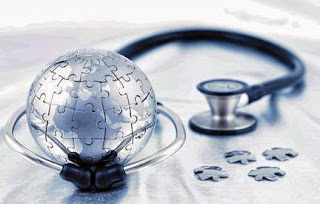Medical Coding: A Key Component of Efficient Healthcare
Source Link: https://www.zupyak.com/p/3834391/t/medical-coding-a-key-component-of-efficient-healthcare-documentation
Medical coding plays a crucial role in healthcare documentation, providing several benefits that improve patient care, streamline billing processes, and ensure accurate reimbursement. By assigning standardized codes to diagnoses, procedures, and medical services, medical coding allows healthcare providers, insurance companies, and government agencies to uniformly collect and interpret patient data. Accurate documentation and coding facilitate effective patient care by providing easy access to relevant information for treatment decisions.
Medical coding also plays a vital role in the billing and reimbursement processes, enabling healthcare providers to generate accurate claims and bills. Well-documented and accurately coded medical records contribute to enhanced patient safety by ensuring critical information is readily accessible to healthcare professionals.
Medical Coding and RCM software
Medical coding and Revenue Cycle Management software play a crucial role in the healthcare industry. Medical coding is the process of translating medical procedures and diagnoses into standardized codes to ensure accurate billing and reimbursement. These codes serve as a universal language, enabling healthcare providers, insurance companies, and regulatory agencies to communicate effectively and efficiently. RCM software, on the other hand, helps healthcare organizations manage the financial aspects of healthcare delivery, including patient registration, appointment scheduling, insurance verification, claims processing, and revenue generation.
The integration of medical coding and RCM software has revolutionized healthcare administration, enhancing efficiency, accuracy, and profitability. With automated coding systems, healthcare professionals can spend more time focusing on patient care rather than laborious administrative tasks. RCM software not only helps in streamlining the billing and reimbursement processes but also optimizes revenue generation by identifying any discrepancies or errors promptly.
Benefits of Medical Coding
Medical coding plays a vital role in efficiently managing healthcare documentation and recordkeeping. It provides numerous benefits that contribute to better patient care, streamlined billing processes, and accurate reimbursement. In this article, we will explore the key benefits of medical coding and understand why it is an essential component of the healthcare industry.
Importance of Medical Coding
Medical coding is the process of assigning standardized codes to diagnoses, procedures, and medical services. These codes ensure that healthcare providers, insurance companies, and government agencies can uniformly collect, analyze, and interpret patient data. Here are some of the reasons why medical coding is crucial to the healthcare ecosystem.
Enhanced Documentation Accuracy
Accurate documentation is vital for effective patient care. Medical coding provides a standardized way to classify medical information, ensuring that healthcare professionals can easily access relevant data when making treatment decisions. Properly coded medical records offer a comprehensive overview of a patient's medical history, diagnostic tests, and treatments, facilitating the continuity and quality of care.
Streamlined Billing and Reimbursement Processes
Medical coding is integral to the billing and reimbursement processes. By assigning appropriate codes to procedures and services rendered, medical coders enable healthcare providers to generate accurate claims and bills. These coded claims are then submitted to insurance companies or government agencies for payment processing. Without coding, healthcare organizations would face significant challenges in receiving timely and proper payment for services rendered.
Improved Patient Safety
Well-documented and accurately coded medical records contribute to enhanced patient safety. Medical coding ensures that critical information, such as allergies, medications, and previous diagnoses, is readily accessible to healthcare professionals. This accessibility prevents potential adverse events, medication errors, and improves overall patient care by providing a comprehensive view of the patient's medical history.
Facilitates Medical Research and Analysis
Medical coding plays a significant role in medical research and analysis. By using standardized codes, researchers can aggregate healthcare data from multiple sources, analyze trends, and identify patterns. Medical coding allows epidemiologists, researchers, and public health officials to track disease prevalence, evaluate treatment effectiveness, and implement evidence-based policies to improve population health outcomes.
Read also: Role of Medical Coding in Medical Research and Analysis
Ensures Compliance with Regulatory Requirements
Healthcare organizations must comply with various regulatory requirements from government agencies and insurance providers. Accurate medical coding ensures that claims and medical records meet these compliance standards. Failure to comply can lead to rejected claims, financial penalties, and legal consequences. By adhering to designated coding guidelines, healthcare providers demonstrate their commitment to maintaining ethical standards and delivering high-quality care.
Medical Coding Services
Many healthcare organizations rely on medical coding services to manage the complexities associated with accurate coding. These services employ experienced medical coders who possess in-depth knowledge of coding guidelines, medical terminology, and documentation requirements. Outsourcing medical coding services not only ensures accurate and timely coding but also allows healthcare providers and their staff to focus on patient care rather than administrative tasks.
Understanding Different Code Sets
Medical coding utilizes various code sets, each serving a specific purpose. Some of the commonly used code sets include:
1. International Classification of Diseases, Tenth Revision, Clinical Modification (ICD-10-CM): ICD-10-CM is used to classify and code diagnoses and symptoms related to patient care. It provides a comprehensive list of codes for diseases, conditions, injuries, and external causes of illness or injury.
2. Current Procedural Terminology (CPT): CPT codes are used to describe medical, surgical, and diagnostic services. These codes provide a uniform language for reporting procedures, treatments, and supplies used in healthcare delivery.
3. Healthcare Common Procedure Coding System (HCPCS): HCPCS codes are used to report additional medical services and supplies not covered by CPT codes. These codes are primarily used for billing purposes in Medicare and Medicaid claims.
Medical coding professionals must ensure accurate code selection based on the patient's medical record, physician documentation, and coding guidelines specific to each coding system.
Conclusion
Medical coding is an indispensable component of efficient healthcare documentation and recordkeeping. Its benefits extend beyond accurate billing and reimbursement processes—it enhances patient care, improves patient safety, supports medical research, and ensures compliance with regulatory requirements. By understanding the importance of medical coding and leveraging coding services, healthcare organizations can optimize their operations, provide superior patient care, and contribute to a more effective and organized healthcare system.



Comments